Beekeepers and the beekeeping industry contribute greatly to the production of food by supporting the pollination of bees, and the contribution of bees for this purpose is even requested on a national level. The Ministry of Agriculture, Forestry, and Fisheries designated a budget to address this every year. But to do so, and of course, to ensure the well-being of the nectar-gathering herd too, it is essential to ensure a farming environment in which bees can grow healthy and well.
The most important thing is to make sure that there is a sufficient number of plants for nectar and pollen. Unfortunately, the number of nectar-rich plants in Japan has been decreasing alarmingly, and this is a major issue that must be addressed.
On the other hand, when we consider the large surface covered by fallow land, abandoned cropland, and woodlands left unattended after logging, we need to evaluate the option of using that land to plant fields or woods of plants that are rich in nectar and pollen.
To solve this problem, in addition to the efforts of beekeepers, we need to think of practical ways to involve the general public in the long-term goal of creating forests of nectar-rich plants in the future for environmental improvement purposes, by offering practical suggestions, for example a way of gardening that is gentler to bees and flower-visiting insects. This establishment addresses the issues that the successors of beekeeping will face with special attention.

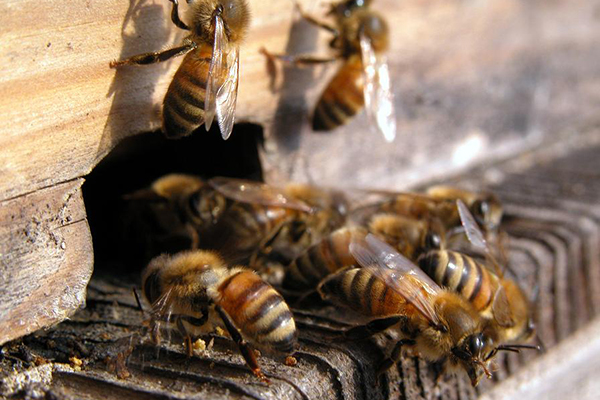
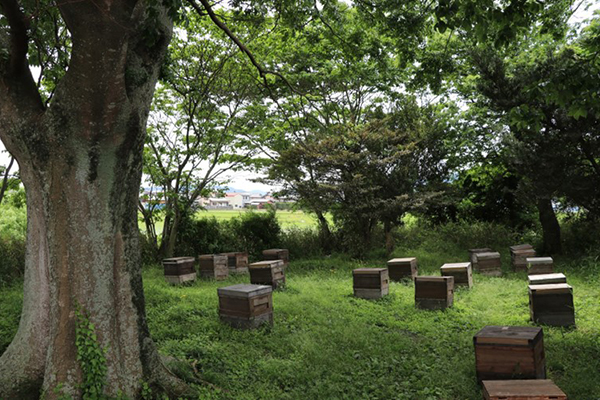
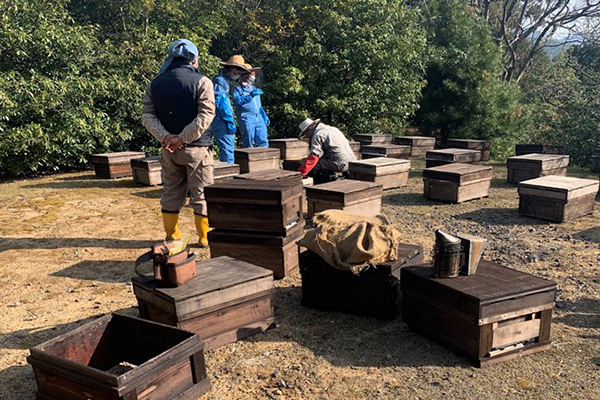
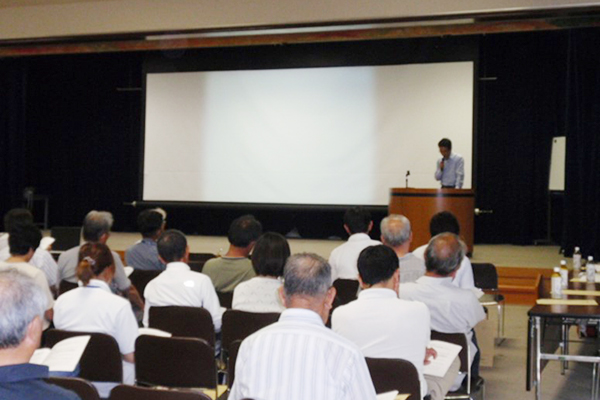
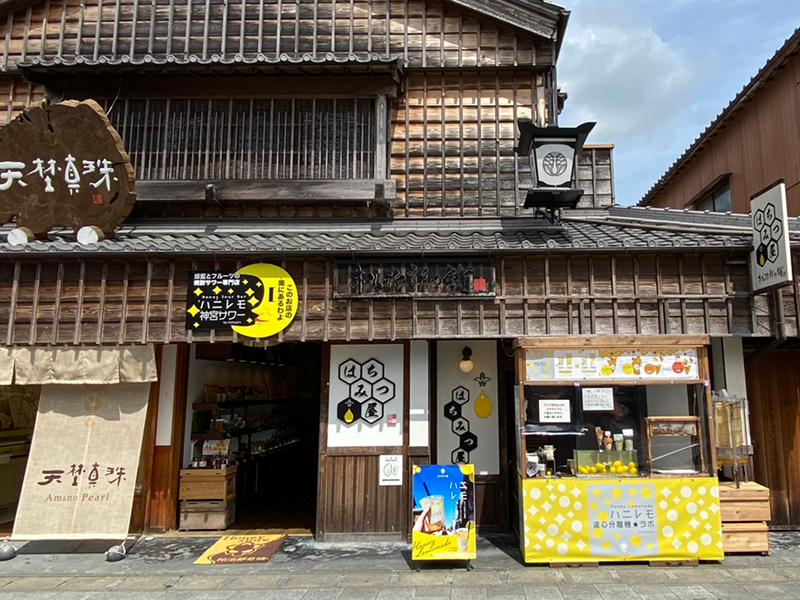
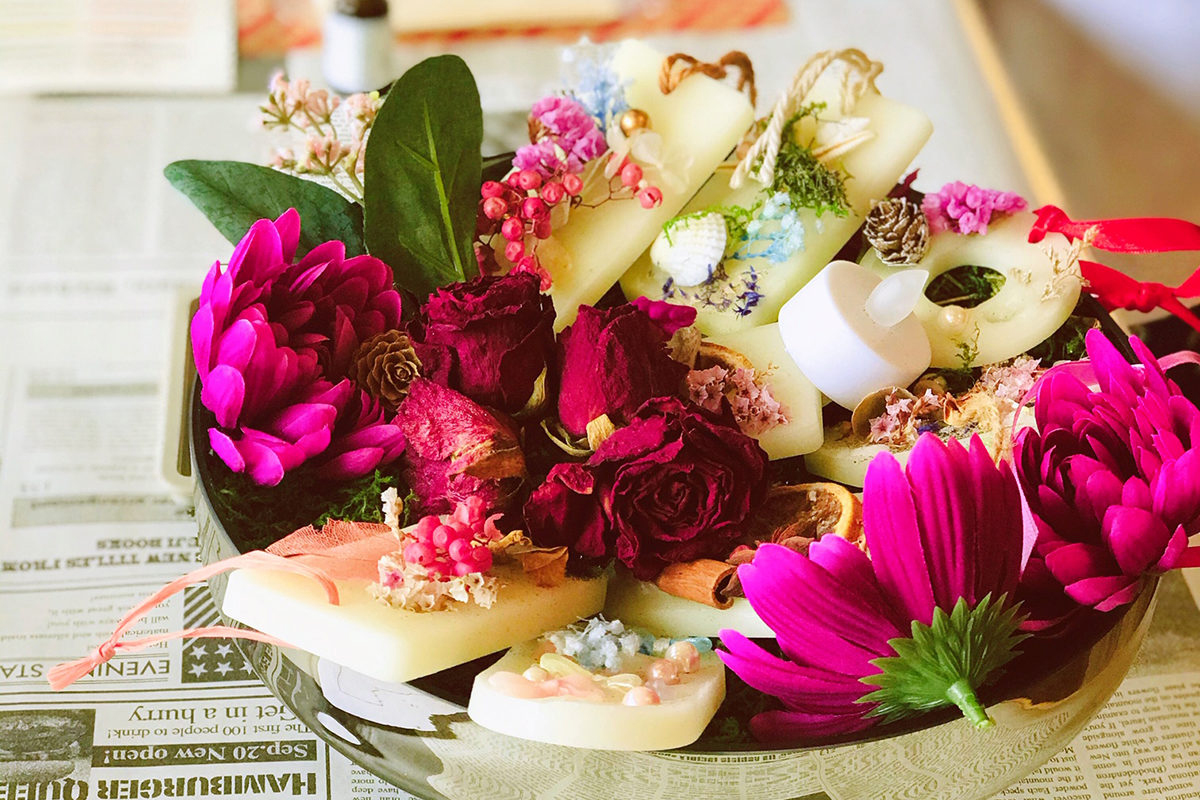 Honey Aroma Wax Sachet Making
Honey Aroma Wax Sachet Making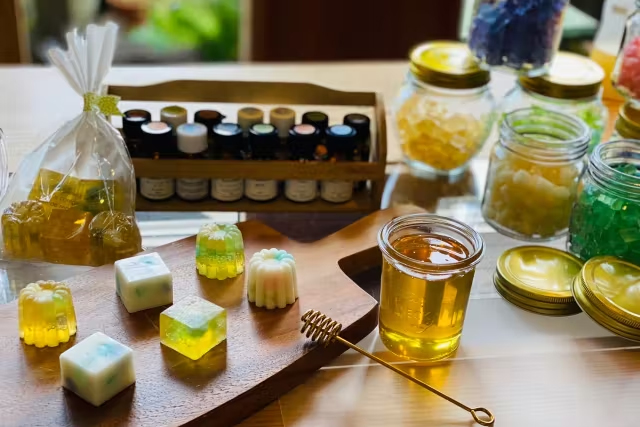 Mosaic Soap & Face Lotion Making
Mosaic Soap & Face Lotion Making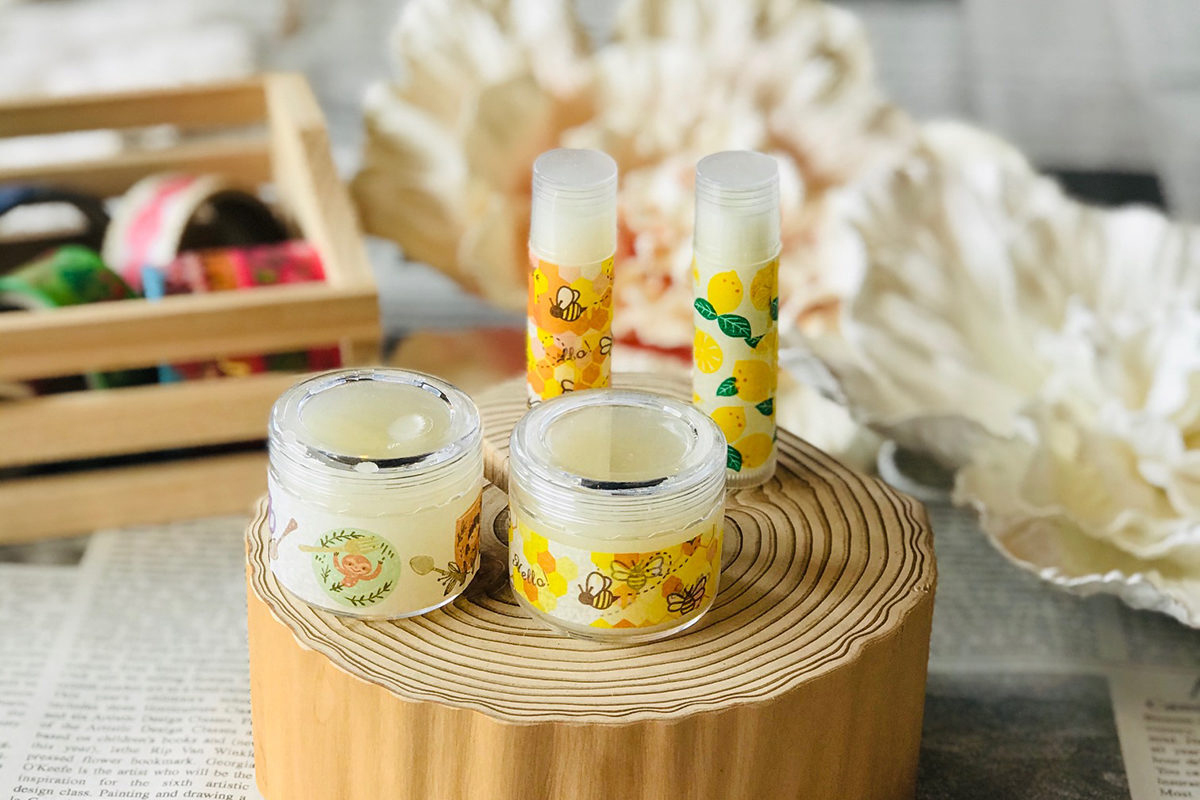 Lip and Hand Cream Making
Lip and Hand Cream Making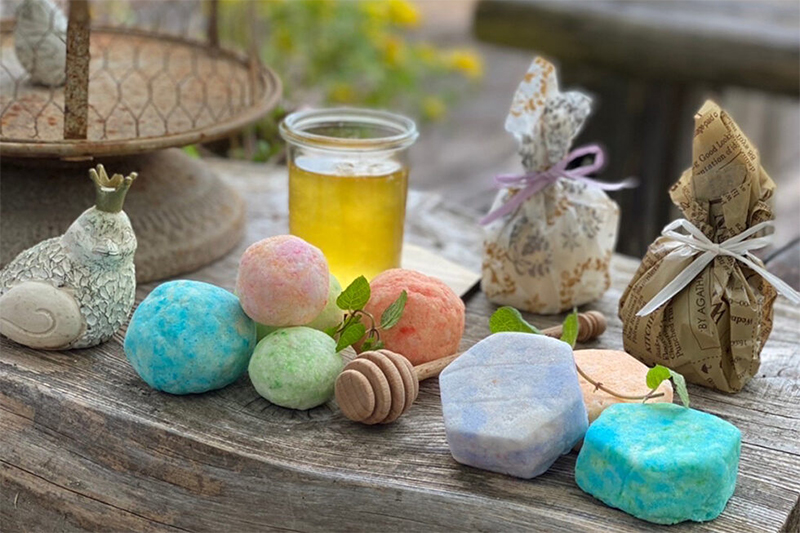 Aroma Bath Bomb Making
Aroma Bath Bomb Making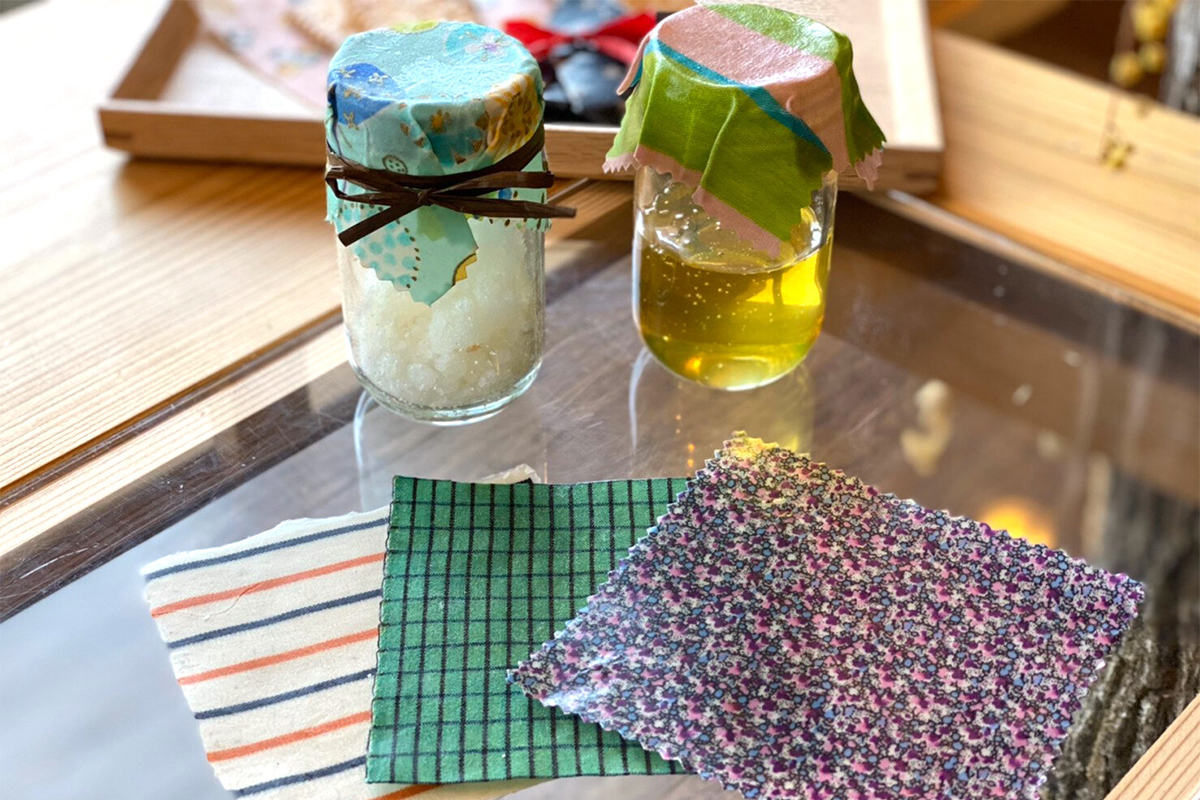 “Mitsuro” Wrap Making
“Mitsuro” Wrap Making Honey Scrub Making
Honey Scrub Making